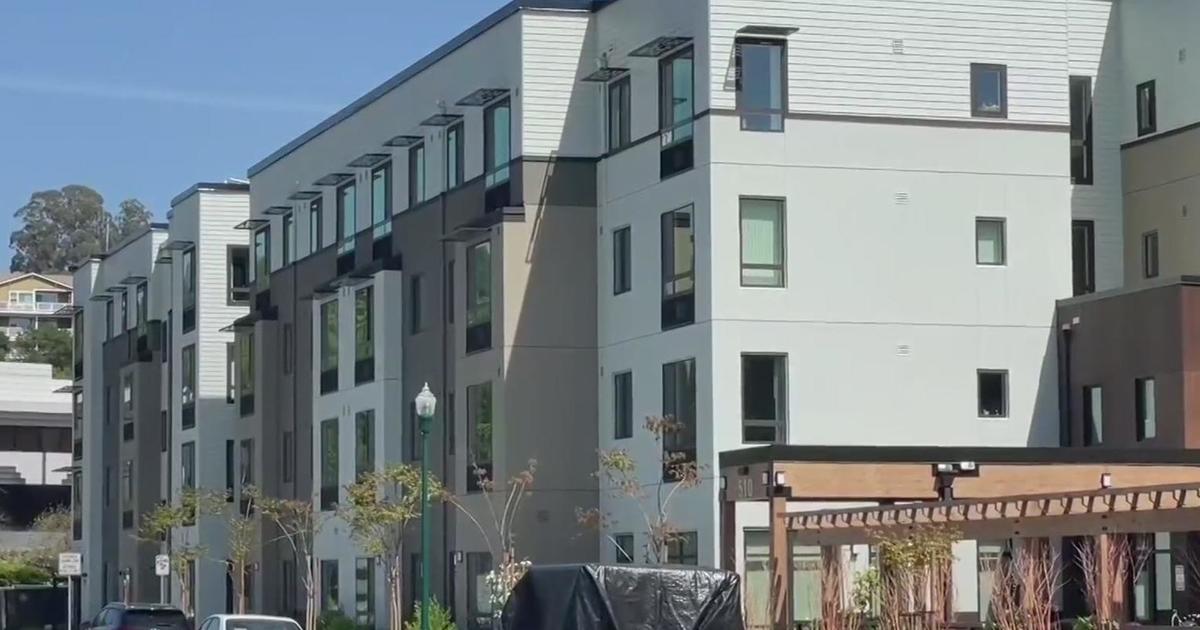Gov. Brown Looks For Tax Hikes To Close $16 Billion Budget Gap
SACRAMENTO (CBS/AP) -- California's sputtering economic recovery is putting a heavier-than-expected drag on state tax revenue, leading Gov. Jerry Brown on Monday to propose deep budget cuts across an array of government services and warn again that even more cuts are ahead if voters reject his tax-hike initiative in November.
Brown's latest budget plan for the fiscal year that begins July 1 proposes $8.3 billion in spending cuts to close a revised deficit of $15.7 billion deficit, an amount equal to 17 percent of the state's entire general fund.
The plan would reduce child care for mothers trying to get off welfare, in-home supportive services for the needy and health care for the poor, as well as cut funding to courts and postpone payments to schools.
Those reductions come on top of tens of billions of dollars in state budget cuts implemented since the recession started in late 2007.
Brown, a Democrat, also is asking state workers to share the pain by taking a 5 percent pay cut, most likely by reducing their work hours. The pay reduction would be handled in contract negotiations with the state's public employee unions.
In addition to the cuts, Brown hopes to close the deficit with $5.9 billion in new revenue from the tax initiative he proposed earlier this year that would temporarily add a quarter cent in the state sales tax and collect higher income taxes on those who make $250,000 a year or more.
KCBS' Doug Sovern Reports:
If voters reject the tax increases in the fall, Brown is proposing $6 billion in additional automatic spending cuts, almost all of which would fall on K-12 schools.
"Cutting alone really doesn't do it," Brown told reporters in releasing his $91 billion general fund budget plan. "And that's why I'm linking the serious budget reductions—real increase to austerity—with a plea to the voters: Please increase taxes temporarily on the most affluent and everyone else with a quarter of a cent sales tax."
Another $2.5 billion would involve delaying paying debt and other internal borrowing.
Brown said his balanced approach was a fair and reasonable way to balance the budget. The sales tax increase would last four years while the income taxes on the wealthy would be raised for seven.
The revised budget deficit is $6.5 billion more than the $9.2 billion gap Brown anticipated in January.
He blamed the widening shortfall on court judgments that prevented him from making cuts to programs such as MediCal and In-Home Supportive Services and on the state's sagging economy.
Unlike many other states, California has yet to show significant progress in emerging from the worst economic downturn since the Great Depression.
Unemployment has crept back up to 11 percent, among the highest rates in the nation. The national unemployment rate has dropped a full percentage point since August—to 8.1 percent in April.
Also in California, home foreclosures also remain among the highest of any state. Home construction, a key driver of the state's economy, continues to be depressed, while home prices in many parts of the state have not recovered.
Those factors have depressed household spending and led to a decline in most tax collections for the state and local governments.
Democrats who control the Legislature said they would cut as much as they can while trying to preserve what they deem essential services.
Senate President Pro Tem Darrell Steinberg, D-Sacramento, said Democrats are not looking for a public fight with the governor.
Republicans said the majority party has refused to enact reforms such as public worker pension and teacher accountability.
"When you have unsustainable policies, you have unsustainable budgets," said Republican Senate leader Bob Huff of Diamond Bar.
Speaking to reporters, Brown addressed the difference between the optimistic state revenue projections he expected months ago and the reality of today's numbers.
Based on the best figures the state could gather, he said he believed at the time that there was a "reasonable shot" at getting an additional $4 billion in revenue.
"We didn't get it. ... We always have to prepare for getting less than we expect or in some cycles we get more. That's the way it is," Brown said. "But the point is, it's very easy to play gotcha. But when I have to cut and people lose their jobs—a mother loses her child care, maybe her job—I'm reluctant to do that if there's a plausible reason why we might not have to."
Public schools, which account for about 40 percent of state spending, would see a funding increase of 16 percent if voters approve Brown's tax initiative. More money also would flow to the state's three higher education systems, which have been the subject of student and faculty protests as courses have been cut and tuition has soared in recent years.
Brown acknowledged that the Democrats who control the Legislature do not want to make more budget cuts, but he said doing so was unavoidable.
"Given the decade of fiscal disconnect, I've committed to righting the ship of state and getting it into balance," Brown said. "Otherwise, we borrow and sink deeper into debt."
(Copyright 2012 by CBS San Francisco. All Rights Reserved. This material may not be published, broadcast, rewritten, or redistributed.)



